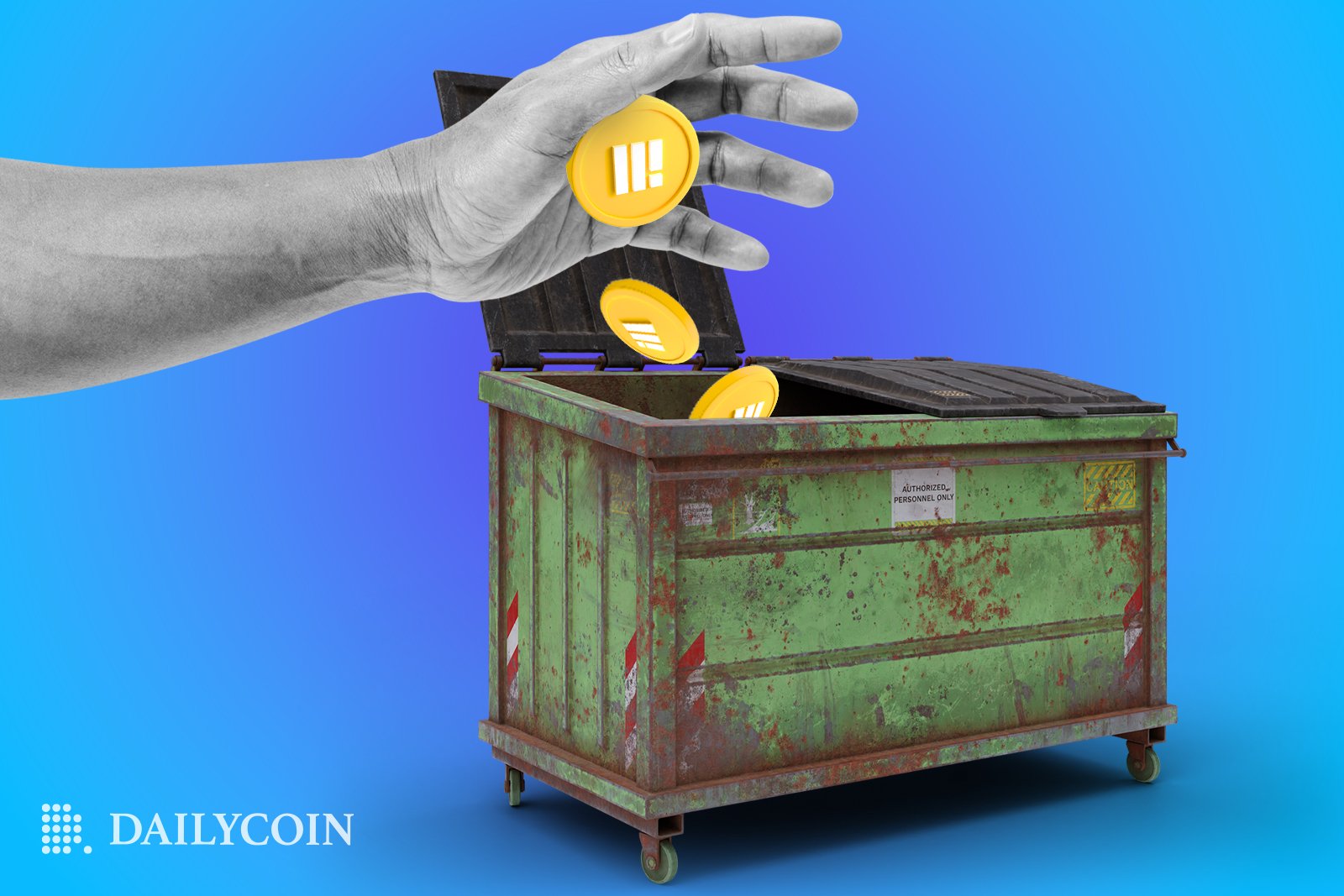
- Binance competitor Coinbase is the first major exchange to drop BUSD.
- BUSD is in trouble after Coinbase’s partner Circle reportedly issued a complaint against it to New York regulators. Coinbase and Circle are joint issuers of USDC stablecoin.
- New York regulators targeted BUSD for liquidation. Since then, Binance has been downplaying its involvement with the stablecoin.
Stablecoin wars are heating up, with exchanges fighting for dominance over the lucrative market.
The latest development saw Coinbase dealing another blow to Binance-linked BUSD. The US-based exchange became the first player to delist BUSD after New York regulators banned its issuance.
“We regularly monitor the assets on our exchange to ensure they meet our listing standards. Based on our most recent reviews, Coinbase will suspend trading for Binance USD (BUSD) on March 13, 2023,” the exchange wrote.
Coinbase users can no longer trade in BUSD on the platform. However, the exchange said they could withdraw the BUSD at any time.
BUSD Under Order of Liquidation After Complaint by Circle
Trouble for BUSD came after Coinbase’s partner Circle reportedly issued a complaint to a New York regulator against BUSD issuer Paxos and Binance. According to Forbes, Circle alleged that Binance did not have enough reserves to cover all BUSD in circulation.
Sponsored
At the time, BUSD and Circle’s USDC were in competing for the position of the second-largest stablecoin after Tether. Coinbase and Circle jointly issue USDC.
For a while, it seemed like BUSD had the upper hand. In October 2022, BUSD surpassed $21 billion in market cap after Binance delisted Circle’s USDC token. However, New York regulators would cut its ascent short.
Sponsored
On February 12, the New York Department of Financial Services (DFS) ordered Paxos to stop issuing BUSD. The regulator cited “unresolved issues” in its relationship with Binance.
The regulatory order meant a gradual end of BUSD. Paxos would have to redeem stablecoins whenever users wanted until its market cap reached zero.
Binance Tries to Distance Itself from Paxos, BUSD
Following the public order, Binance would try to distance itself from Paxos and BUSD. However, Binance has ties to BUSD that go deeper than just the name. For one, over 90% of BUSD is on Binance. While Paxos issued BUSD on Ethereum, Binance issued wrapped versions of BUSD on other chains, including BSC. This was reportedly what got both Paxos and Binance in trouble. According to Circle’s complaint, Binance did not hold sufficient reserves to redeem all wrapped BUSD tokens.
As per the regulatory order, holders of ETH-based BUSD can convert their stablecoins 1:1 for cash at Paxos. This does not hold for holders of wrapped BUSD on other chains; they must trust that funds are “SAFU” at Binance.
Binance CEO Changpeng Zhao (CZ) maintains that reports of insufficient reserves constitute spreading “FUD” against the exchange. “Binance holds user funds, 1:1, always,” CZ said Tuesday.
“We implemented proof-of-reserves using a new zero-knowledge (ZK) approach (suggested by Vitalik), protecting our users’ security and privacy,” he added.
On the Flipside
- Regulators are increasingly eager to crack down on crypto assets following the FTX collapse.
- Regulatory issues and concerns over reserves highlight the importance of creating decentralized solutions in crypto.
Why You Should Care
Binance is by far the biggest exchange in the crypto market. Its ongoing regulatory troubles could have negative implications for the entire market.
Read more about concerns over Binance’s reserves:
Binance’s Commingling of Funds: A Wake-Up Call for Better Crypto Regulations
Coinbase is still in the red thanks to the ongoing crypto winter:
Coinbase Posts Another Quarterly Loss Amid Regulator Crackdown
